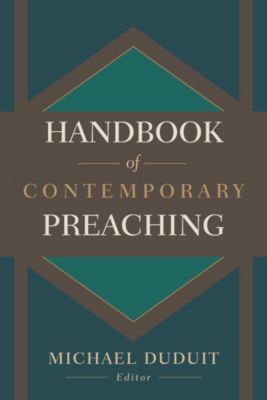
As you prepare for the new year, here are a few sermon planning ideas that may help you get a head start on sermon preparation.
By Mark Dance
The pressure of sermon planning never lets up for pastors. Some weeks have more margin than others, and some texts are more fun to preach than others, yet Sunday is coming regardless. According to a 2012 Lifeway Research study, close to 7 in 10 Southern Baptist pastors spend at least eight hours a week on sermon preparation, with 21% saying they spend more than 15 hours.
That is some heavy lifting, so let me share a few sermon planning ideas that may help you get a head start on this important task for next year.
1. Get away from the office
In order for me to hear directly from God, I sometimes need to tune out the voices of other people. I am writing this article in my home office for that same reason. I just now got a text, which reminded me to turn off my ringer until I finish writing this post. Regardless of your particular role, focused time is essential for someone who takes their ministry seriously.
“Regardless of your particular role, focused time is essential for someone who takes their ministry seriously.” — @markdance Click To TweetMy practice has been to pull away from the church office for a day or two every quarter for the sole purpose of sermon preparation or writing. This always takes discipline and planning, but the payoff is worth it. Not everyone who is reading this has the opportunity to do it the same way, but if you don’t push preaching to the front of your priority list, lesser priorities will fill your calendar by default.
“When they observed the boldness of Peter and John and realized that they were uneducated and untrained men, they were amazed and recognized that they had been with Jesus” (Acts 4:13, CSB).
When is the last time you got off campus for the sole purpose of devoting yourself to prayer and the ministry of the Word (Acts 6:4)?
2. Plan your series six months out
You can relieve some of your pulpit pressure by using a portion of your off-campus study time to dream about what comes next. Don’t let titles and text divisions bog you down. I would use this time to simply ask God what my church needed to hear for the next six months and pick out a couple of Old Testament books and New Testament books. Then I would add holiday messages and vacation days.
Knowing where I was headed months in advance gave me room to read the text devotionally before working on the sermons. Advanced planning also takes the pressure off of last-minute decisions for your worship and media leaders.
“Preach the word; be ready in season and out of season; correct, rebuke, and encourage with great patience and teaching” (2 Timothy 4:2, CSB).
3. Organize the series around Scripture
Text-driven preaching is not a fad or a style. The term “text-driven” may be fairly new, but expository preaching is rooted in Scripture. Give the text the respect it deserves by organizing your series around Scripture and not the other way around. Sermon planning that is driven by the text will thwart the temptation to be more creative than you really are or should be.
“Sermon planning that is driven by the text will thwart the temptation to be more creative than you really are or should be.” — @markdance Click To Tweet“My speech and my preaching were not with persuasive words of wisdom but with a demonstration of the Spirit’s power, so that your faith might not be based on human wisdom but on God’s power” (1 Corinthians 2:4-5, CSB).
4. Share your pulpit
Take some of the pressure off your pulpit by sharing it with other faithful, able men. Nothing in the Bible suggests that preaching is just for professionals. Summer and holidays like Labor Day and Memorial Day are great opportunities for you and your congregation to take a break from the norm by bringing in fresh voices.
Also, do not forget to plan for your personal time off. Your calendar will reflect your priorities and your nuclear family should be the VIPs in your faith family. Also, you need time away to rest, reflect, and recharge. I would not hesitate to ask someone to preach, even when I would be on campus and in the service. Never apologize for equipping people to do the work of the ministry, because that is an important part of your job.
“What you have heard from me in the presence of many witnesses, commit to faithful men who will be able to teach others also” (2 Timothy 2:2, CSB).
5. Preach imperfect sermons
I was a lead pastor for three decades—27 years full-time plus three years part-time (as an interim pastor). What all of my pastorates had in common was the expectation that people would hear a fresh, original word from God each Sunday. What they don’t need is a perfect sermon.
Some of my sermons and series have been better than others, but they have always been my sermons. While I admire and sometimes covet the preaching and writing gifts of others, I’ve come to appreciate the unique, salty voice God gave me. Earlier in my ministry I obsessed over the sermon to the extent of noodling on it during worship. Pastoral perfectionism is idolatry dressed up in fancy clothes. It’s the flowing robes of the Pharisees.
“Pastoral perfectionism is idolatry dressed up in fancy clothes.” — @markdance Click To TweetDo you remember who was voted best New Testament preacher by the only judge on the panel? The mold-breaking baptizer named John. Jesus said of him: “John was a burning and shining lamp” (John 5:35a, CSB). His sermon was likely as polished as his suit.
I hope this inspires you to take some time before the New Year to get a head start on your sermon planning as well as to take a break to rest and recharge before another year of ministry.
For permission to republish this article, contact Marissa Postell Sullivan.

Mark Dance
After serving as a pastor for 27 years, Mark Dance is now the director of pastoral wellness for GuideStone Financial Resources and is the author of Start to Finish.











